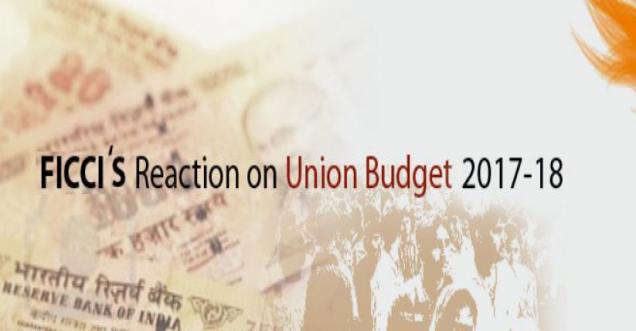
NEW DELHI, 9 February 2017: The Federation of Indian Chambers of Commerce and Industry (FICCI) organized a press meet today to highlight the concerns of the e-commerce sector pertaining to the clause of “Tax Collection at Source” proposed under the Model GST Law in the presence of industry leaders and key stakeholders.
E-Commerce is one of the flourishing sectors of the country and has remained as a core part of the Government’s Start up India, Make in India, Digital India and Skilled India programs. The sector needs to be nurtured with right policy framework and guidelines in order to make it more productive.
FICCI appreciates the Government for the passing of the much awaited ‘Goods and Services Tax’ Bill and is certain that the implementation of GST will help in increasing the productivity and transparency in the country by increasing the tax-GDP ratio. Moreover, the much awaited One-Country-One-Tax policy will be implemented in the greater interest of the national economy.
However, the draft Model GST law that is due to be finalized soon has proposed a clause called Tax Collection at Source. The Tax Collection at Source (TCS – Section 56) clause under the GST draft model law, mandates e-commerce marketplaces, to deduct 2% of the transaction value and submit it to the government. As an estimate, this clause would lead to locking up about Rs. 400 crores of capital per annum for the e-commerce sector. In addition, it would result in a loss of an estimated 1.8 lakh jobs, putting a halt to the growth and investments in the sector.
TCS would have a direct impact on the sellers of the marketplace, who are generally small in nature with a turnover in the range of INR 50 lakhs to INR 10 crores per annum. The ecommerce marketplace model facilitates sellers in maximising their capital efficiency by rotating it frequently, which helps to provide the volumes required to generate profit for the sellers.
Blocking capital, would disrupt the cash flow, thus making it difficult for sellers to generate profits. Additionally, TCS is bound to increase the working capital requirements for the sellers, who might resort to increasing margins or internalising the costs, to cover the additional burden. There is a need to find out alternatives which could be employed to ensure that regular information on tax, is made available to the government, without jeopardising the business model and future growth prospects of the nascent e-commerce sector. Dr Didar Singh, Secretary General, FICCI appreciated the moves of the Government towards digitization and formalization of the economy further, and quoted the recent example of demonetization in this perspective. He added that passing of the much awaited GST Bill would bring further uniformity in the market and boost the national economy. However, he stressed that there is a need to have a conducive tax environment for the sector as also reflected in the agenda of World Trade Organization (WTO) globally.
The Tax Collection at Source (TCS) clause within the Model GST Law mandates the e-commerce marketplaces to deduct a portion of the amount payable to the supplier of goods / services and remit it to the government. At the moment, the e-commerce sector in India is at less than 2% of the entire retail segment and moreover, at a very nascent stage, with a promise of high growth in the future. Subjecting the sector to a major compliance at such an early stage will not only result in slowing it down but also deter the benefits that e commerce fosters in terms of employment creation and giving a boost to both the manufacturing and services space by providing an apt platform. Moreover, this clause is discriminatory towards online sellers as it does not exist in the offline retail segment.
Dr. Singh backed that the Government should find out alternative ways to replace the clause, may be the information related to the sellers declared to the Government would be the best feasible option available. He also stressed that the sector is one of the core pillars of the Government’s ‘’Digital India’’ campaign and is needed to be nurtured with right set of policy frameworks and guidelines.
Mr. Kunal Bahl, Co-founder and CEO, Snapdeal said that ‘‘GST is a key tax reform, which will simplify the tax compliance burden for the entire economy. However, the proposal of tax collection at source, directed only at e-commerce marketplaces, in the Draft Model GST Law, will hurt lakhs of small sellers by making online sales expensive and cumbersome for them. The proposal, while adding needless complexity for the sellers, provides no benefit to the tax authorities and will lead to duplication of information followed by the need for its reconciliation. It is a measure, which goes against the spirit of making India digital and improving the ease of doing business in the country.
We are positive that the government will address this crucial concern.” Mr. Amit Agarwal, Country Head, Amazon India mentioned that “we welcome the introduction of the new GST Bill. E-commerce has opened up immense growth opportunities for Small & Medium Businesses by enabling easy and convenient access to not only a nationwide consumer base but also to global markets. We believe GST is good for the ecommerce industry as it would eliminate hurdles in inter-state delivery and subsume the entry tax introduced on e-commerce shipments by some states. However, we remain concerned about the Tax Collection at Source provision which we believe will negatively impact the growth of marketplaces at a stage when the industry is still in its infancy. There is an urgent need to re-evaluate such an onerous requirement/ we are working with the government on this and hope for a favourable resolution.” Mr. Sachin Bansal, Co-founder & Executive Chairman, Flipkart said “the Indian e-commerce growth story is marvellous. Flipkart alone has on boarded around ten thousand sellers and has contributed a lot towards the growth of first generation entrepreneurs, I’m sure that the other companies have the similar numbers. GST is in fact one of the most forward looking moves being made by the Government and would bring the ‘one country – One Tax policy. However, the Tax Collection at Source (TCS) clause would lead to blockage approx. Rs. 400 crore of working capital into the system, and will discourage sellers to come online. Also, the Government needs to set a level playing field as the clauses is not pertinent to the off-line retail segment. Central and the state Governments needs to find out alternative ways to address the situation and the e commerce platforms may give a self-declaration about the taxes being reimbursed by the sellers. Some of the states namely Kerala, Rajasthan and Delhi are already doing the same. I’m sure that the clause would be removed in the greater benefit of the Indian digital space as a whole.’’ The conference witnessed the participation from representatives from Industry, including Mr. Kunal Suri, COO, FoodPanda.



























